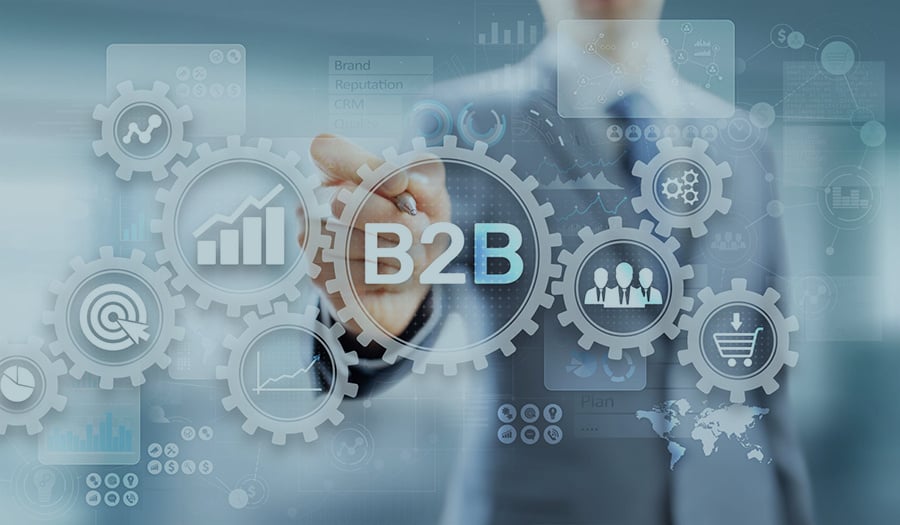What is an e-Commerce B2B and why is it important for your company
B2B is the acronym for "business to business", which refers to the business model in which transactions of goods occur between two companies,...
3 min read
Por Victor Esquivel | May 14, 2021
3 min read
Por Victor Esquivel | May 14, 2021
Now is the perfect time to consider the B2B strategy for your business.
The future of digital commerce is already knocking on our doors. According to Adobe/Magento data, it is estimated that e-commerce will account for more than 25% of retail by 2030, which means that all companies, regardless of size, will need a competitive commerce management platform with the ability to adapt to growing operational demands and buyer experience expectations.
In previous blogs we talked about:
The two previous points give us the most important generalities that we must keep in mind when we start thinking about the definition of the B2B strategy, now, taking into account that e-commerce is expected to be the dominant channel worldwide in the coming years, on the one hand, your company requires a fast and flexible trading platform to maintain a solid long-term growth and on the other, you need to understand how to approach your B2B strategy, so here we help you by asking the key questions, and the business reasoning behind them, that will enable you to select the right e-commerce platform to remain competitive in the digital marketplace.
We cannot forget the most important thing about B2B commerce, according to Statista, one of the most relevant market data firms, the global B2B e-commerce market was worth $12.2 trillion in 2019 and it is evident that this will increase exponentially during 2020. Furthermore, by comparison, this is more than 6 times the value of B2C e-commerce, which is why companies should be clear that the focus of their e-commerce strategy should primarily be on B2B business. This implies that the valuation of platforms for the business strategy must take this element into account.
The COVID-19 pandemic has clearly forced and energized the digital commerce market to new heights by forcing companies to adopt digital platforms; and suppliers to adopt new approaches and pricing models, which is all the more reason to have elements that allow us to assess the options available in the market, as there is a wide variety of e-commerce platforms, among which the following stand out:
Considering the two critical issues of catalogue management and customer contracts and looking at the plethora of platforms available, our idea is to save you time and effort in finding the right e-commerce capabilities for your organization, so here we have put together the key elements you need to consider discovering the technologies that are helping companies build the future of commerce.
The questions to ask yourself are:
Whether you are just starting out or already have an e-commerce presence, choose an e-commerce platform that runs in the cloud.
Don't force your business needs on the capabilities of your technology provider. Choose a provider that provides enough flexibility to create a unique customer experience.
Think about what your business will look like two, three and five years from now. Think about how your platform can support your growth plans from day one.
Does the platform have the versatility to create different shop views, handle multiple languages, among others?
Your e-commerce platform should be a team player. Choose one that easily connects and integrates with your other business systems.
More is better. Choose a platform from a vendor that fosters a large, geographically diverse community of partners and solution developers.
If there is even a slight chance that your company will adopt multiple business models, choose a platform that supports them.
To learn which platform features to optimize your B2B business strategy and compete in online marketplaces, we invite you to download this eBook.


B2B is the acronym for "business to business", which refers to the business model in which transactions of goods occur between two companies,...

The contract with B2B customers is the document that stipulates the conditions under which one party will provide a material good or service to the...

The exchange of supplies between companies is very common, since they provide what is necessary for the generation of products, such as raw materials...